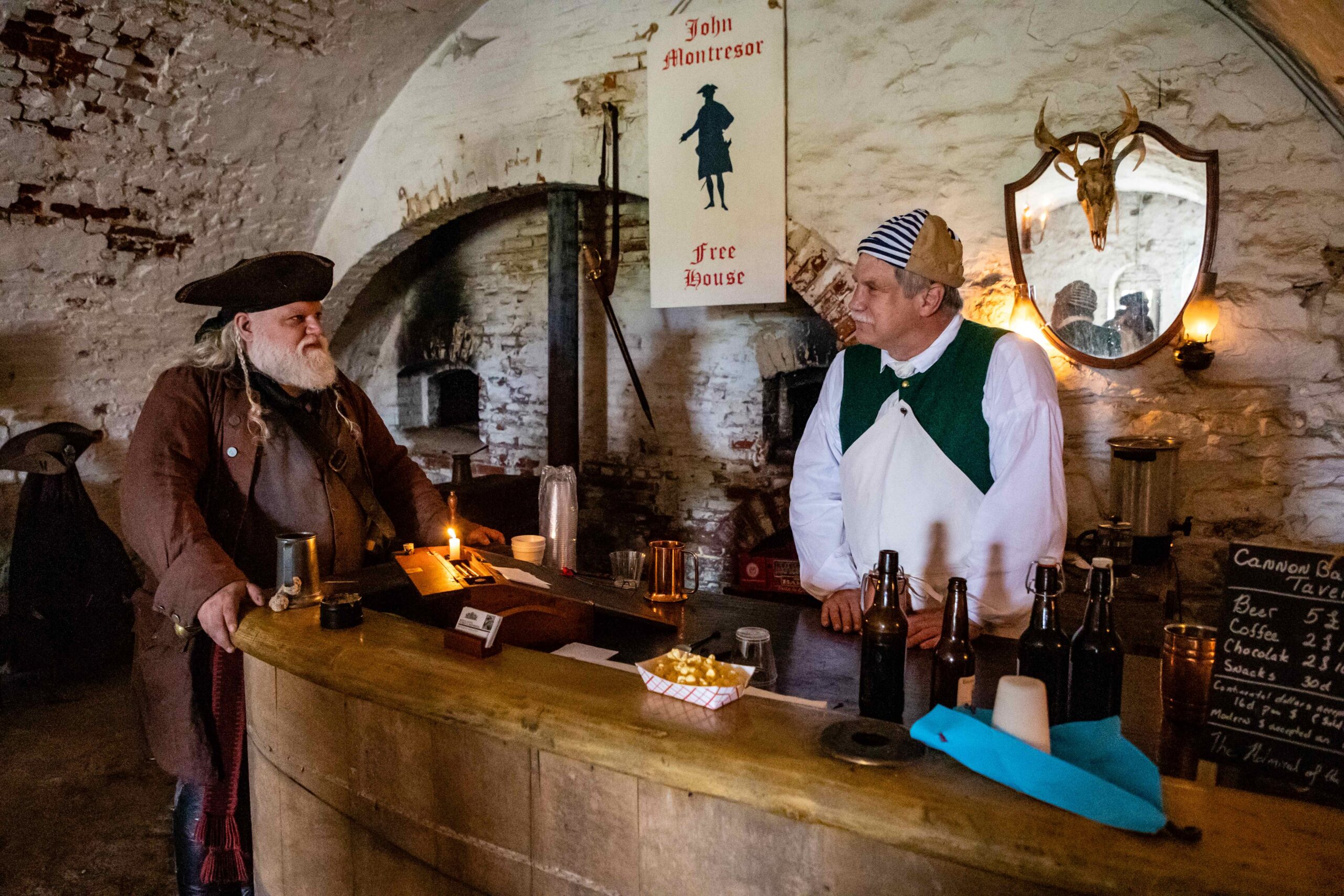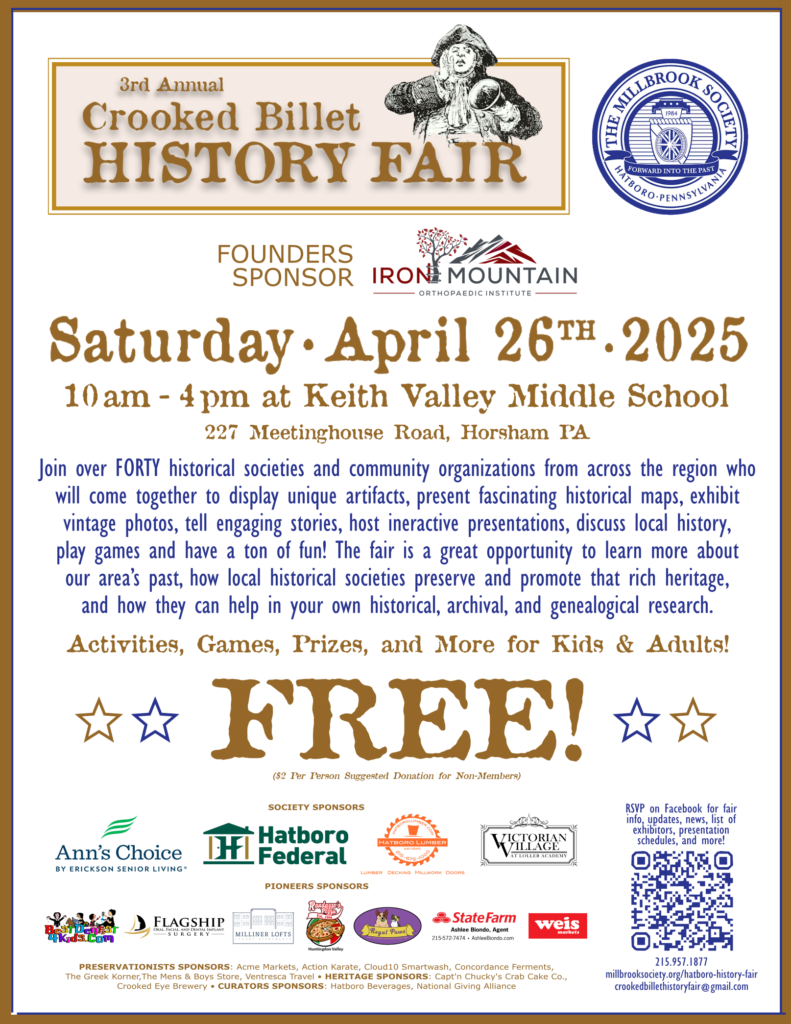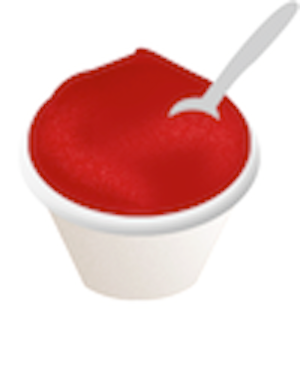
Cannonball Tavern at Fort Mifflin
April 19 @ 6:00 pm - 10:30 pm
$30
Your ads will be inserted here by
Easy Plugin for AdSense.
Please go to the plugin admin page to
Paste your ad code OR
Suppress this ad slot.
While few Officers’ Clubs survived the Cold War, we are going to bring back the tradition at Fort Mifflin this year. Military Officers’ clubs date back to the Middle Ages and were establishments where officers from the aristocratic landowners congregated. These were meant to be distinct from the public houses where peasants met to drink and entertain themselves. Officers’ clubs were a privilege of office and entry was restricted to those officers who had earned their commissions (later meaning graduates of officer training programs. Originally (and in some cases even today), Officers’ Clubs reinforced the social distance between enlisted soldiers and their officers. By the time Fort Mifflin was recommissioned in 1794, maintaining strict separation between officers and enlisted personnel was difficult. The garrison was small and there are few recreational activities for any soldiers, so the garrison OC was more accepting of non-commissioned officers (privates are still out).
The bar is an essential element of most officers’ clubs. Some clubs served meals as an alternative to the rigid schedule and customs of the mess, and a few larger clubs even hired entertainers like musicians. The heyday for military officers’ clubs was during World War II but many bases (especially in the Air Force) continued to host officers’ clubs through the Cold War. These bases often also included separate enlisted clubs. The protected environment of an officers’ club offered refuge from public disapproval during times when the public disapproved of the military (e.g. during the Vietnam War).
Join us on Saturday, April 19th as we transform two of the casemates at Fort Mifflin into an 18th Century Officers Club. Patrons are invited to an evening of storytelling and merriment during which they can enjoy an 18th Century tavern experience complete with period beer, cocktails, competitive toasts, games and various entertainments, and maybe even a rousting political debate.
The Regimental Brewmeister will provide period correct, field brewed beers, ciders, and meads. The Admiral of the Blue Apron, then takes these with the addition of locally produced spirits to fashion 18th Century tavern cocktails, punch, and other libations.
Beyond good ale, cocktails, and punch, we provide the following entertainments you are likely to encounter were you to visit a tavern in 1770:
Competitive Toasting: Toasts would solidify the bonds of groups. Toasts add a competitive element of drinking. To give a proper toast requires courage, it’s sort of a mini performance, one that requires facing the chance of achieving great success or stumbling over what you say. Toasting elicits laughter, dispenses well wishes, and venerates people, events, and ideas (like liberty).
Parlor Games: Just like today, people of the 18th Century enjoyed parlor and tavern games, often gambling. There are two primary types of parlor games: card games, and dice games but certainly some establishments, especially in London, also had draughts, backgammon, chess, darts and billiards. The aim of most tavern games is not to create a competition but rather an excuse to sit together and discuss the day’s news.
Sharing of news and current events: Did you know Fort Mifflin has a newspaper? Taverns shared newspapers because the roads were poor and travel in the 18th Century was difficult and slow but when travelers came, they shared the news. Some even brought their newspapers, pamphlets, and even books which when they had finished reading which they frequently left or loaned at the tavern.
Glees and Tavern Songs: Glees and songs made for and about drinking are, of course, nothing new. Americans used drinking songs to band together in ale and song. In the ultimate homage to a night of drinking, Francis Scott Key borrowed the tune of a bawdy British drinking song (“To Anacreon in Heaven”) about overindulgence and questionable relationship choices when he wrote “The Star-Spangled Banner.”
Ticket can be purchased at https://www.ticketleap.events/tickets/fortmifflinonthedelaware/cannonball-tavern-801189955. This is a fundraiser for Fort Mifflin so come and enjoy the comradery of your fellow soldiers at the fort. We will be in the casemates this year so you may even get to meet some of our permanent garrison.




